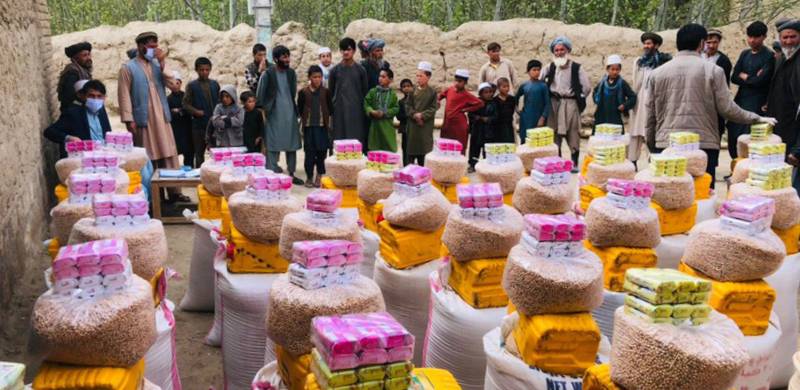
The United Nations (UN) has warned that Pakistan's flood crisis could threaten Afghanistan's food supply, as the devastating floods will make transporting food into the neighboring country more challenging.
On Friday, the UN as well was the United Nations Food Programme said that much of the food aid transported into Afghanistan goes through Pakistan's roadways, many of which have been badly destroyed in the floods. The devastating floods that have led to the death of nearly 1,200 lives has also damaged nearly 3,000 km of road track.
World Food Programme's Pakistan country director Chris Kaye said, "We're focused absolutely on the needs of the people in Pakistan right now but the ramifications of what we're experiencing here go wider," adding that the organisation has become 'very, very concerned' for food shortage problems not just for Pakistan in the immediate and medium run, but also for its implications in Afghanistan.
"Pakistan provides a vital supply route into Afghanistan," he said, explaining that large amounts of Afghanistan's food enter via the port of Karachi. "With roads that have been washed away, that presents us with a major logistical challenge," Kaye told reporters.
He said that the WFP had procured 320,000 metric tonnes of wheat in the past year, but the floods in Pakistan would 'dent' that capacity. Additionally, wheat that had been harvested and stored in Pakistan had been washed away due to the floods. "There will likely be a major problem in restoring agricultural production in Pakistan to feed its own people and continue supplying food to Afghanistan," he said.
On Friday, the UN as well was the United Nations Food Programme said that much of the food aid transported into Afghanistan goes through Pakistan's roadways, many of which have been badly destroyed in the floods. The devastating floods that have led to the death of nearly 1,200 lives has also damaged nearly 3,000 km of road track.
World Food Programme's Pakistan country director Chris Kaye said, "We're focused absolutely on the needs of the people in Pakistan right now but the ramifications of what we're experiencing here go wider," adding that the organisation has become 'very, very concerned' for food shortage problems not just for Pakistan in the immediate and medium run, but also for its implications in Afghanistan.
"Pakistan provides a vital supply route into Afghanistan," he said, explaining that large amounts of Afghanistan's food enter via the port of Karachi. "With roads that have been washed away, that presents us with a major logistical challenge," Kaye told reporters.
He said that the WFP had procured 320,000 metric tonnes of wheat in the past year, but the floods in Pakistan would 'dent' that capacity. Additionally, wheat that had been harvested and stored in Pakistan had been washed away due to the floods. "There will likely be a major problem in restoring agricultural production in Pakistan to feed its own people and continue supplying food to Afghanistan," he said.

